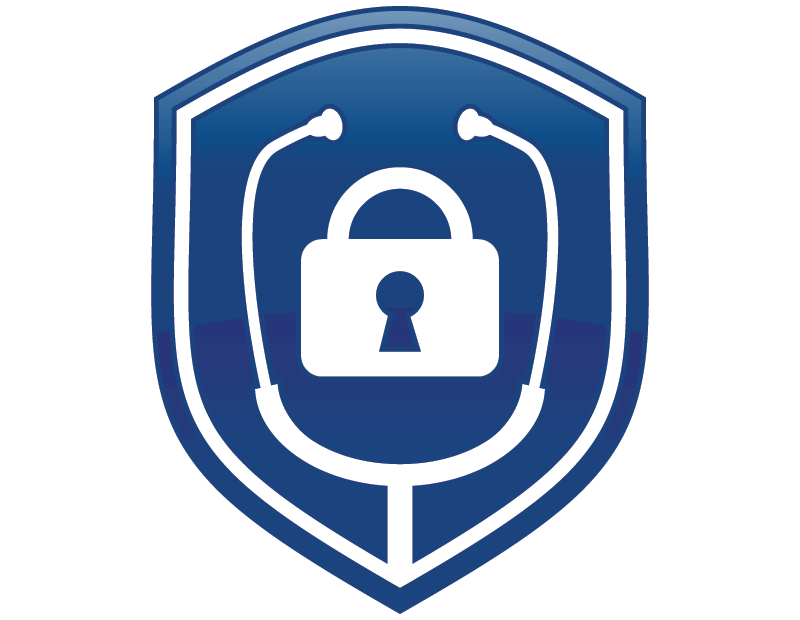




Information handling involves the recording of accurate information in care plans, accident forms and personal records. It is important that we do not put our own views in this information, but state exactly what happened. If an individual is found lying on the floor and they were not seen falling, it would be inaccurate to state in the accident form that the individual had fallen, as we would not of have witnessed this.
To ensure we protect confidentiality, we need to store or handle these records safely. As we use care plans frequently we may forget the importance of their security. It is very important that after reading or recording in the notes we place them back in a safe place. The reasons for this are to ensure that those who are not authorised to read them will not have access to them.
Mae'r broses o ymdrin â gwybodaeth yn cynnwys cofnodi gwybodaeth gywir mewn cynlluniau gofal, ar ffurflenni damweiniau ac mewn cofnodion personol. Mae'n bwysig peidio â nodi ein safbwyntiau personol fel rhan o'r wybodaeth hon, ond yn hytrach, dylid datgan yn union beth a ddigwyddodd. Os deuir o hyd i unigolyn yn gorwedd ar y llawr ac na chafodd ei weld yn syrthio, byddai'n anghywir datgan ar y ffurflen damweiniau fod yr unigolyn wedi syrthio, gan na fyddem wedi gweld hynny'n digwydd.
Er mwyn sicrhau ein bod yn diogelu cyfrinachedd, mae angen i ni storio'r cofnodion hyn, neu ymdrin â nhw, yn ddiogel. Gan ein bod yn defnyddio cynlluniau gofal yn rheolaidd, efallai y byddwn yn anghofio pwysigrwydd eu cadw'n ddiogel. Mae'n bwysig iawn, ar ôl darllen y nodiadau neu wneud cofnodion yn y nodiadau, ein bod yn eu dychwelyd i fan diogel. Gwneir hyn er mwyn sicrhau na fydd y rheini nad oes ganddynt awdurdod i'w darllen yn gallu cael gafael arnynt.

Legislation, codes of conduct and professional practice give us clear guidelines to follow on handling information, for example, the General Data Protection Regulation and NHS Wales Code of Conduct and Code of Practice.
Personal information is protected by legislation or law. The General Data Protection Regulation protects the individual from having their personal information shared, and protection is also included in the common law of confidentiality and the Human Rights Act 1998.
The Human Rights Act states that it has ‘respect for individual private lives and prescribes the circumstances in which it is legitimate for a public authority to interfere with the enjoyment of this right’.
Deddfwriaeth, codau ymddygiad ac ymarfer proffesiynol sy’n rhoi canllawiau clir i ni eu dilyn mewn perthynas ag ymdrin â gwybodaeth, er enghraifft, y Rheoliad Cyffredinol ar Ddiogelu Data a Chod Ymddygiad a Chod Ymarfer GIG Cymru.
Caiff gwybodaeth bersonol ei diogelu gan ddeddfwriaeth, neu'r gyfraith. Mae'r Rheoliad Cyffredinol ar Ddiogelu Data yn amddiffyn unigolion rhag cael eu gwybodaeth bersonol wedi'i rhannu, a chânt eu hamddiffyn hefyd gan y gyfraith cyfrinachedd gyffredin a Deddf Hawliau Dynol 1998.
Mae'r Ddeddf Hawliau Dynol yn nodi eu bod yn parchu bywydau preifat unigolion ac yn rhagnodi o dan ba amgylchiadau y mae'n gyfreithlon i awdurdod cyhoeddus ymyrryd â'r gallu i fwynhau'r hawl hon.

The NHS Wales Code of Conduct describes the standards of conduct, behaviour and attitude required of all Healthcare Support Workers employed within NHS Wales. The Code applies to all Healthcare Support Workers employed in clinical and non-clinical environments and is used in job descriptions.
Mae Cod Ymddygiad GIG Cymru yn disgrifio'r safonau ymddygiad, yr ymddygiad a'r agwedd sy'n ofynnol gan bob Gweithiwr Cymorth Gofal Iechyd a gyflogir o fewn GIG Cymru. Mae'r Cod yn berthnasol i bob Gweithiwr Cymorth Gofal Iechyd a gyflogir mewn amgylcheddau clinigol ac anghlinigol ac fe'i defnyddir mewn disgrifiadau swydd.

All information recorded, whether in care and support plans, communication records or personal files, must be accurate, honest and detailed so that everyone involved in the setting knows what took place, or how best to support the individual. All records must be precise and agreed with the individual who is receiving the care or checked with a senior for accuracy and currency. Records such as a care and support plan or medication record are legal documents. The individual has the right to see their records and should review these records frequently. When writing care and support plans, it is important to keep in mind who has the right to read these records and the importance of factual recordings. If the care received has not been documented then legally there is no proof that it took place.
Clear recordings of information ensure that we are able to deliver the best care; an example of this would be identifying clearly what the individual likes to eat, so that if they refuse a meal we can identify if this is due to foods they dislike. We need to record on a regular basis likes and dislikes to ensure the record is current. Sometimes, an individual’s taste buds can change and what they disliked at one time they may now like.
Mae angen i'r holl wybodaeth a gaiff ei chofnodi, boed mewn cynlluniau gofal a chymorth, cofnodion cyfathrebu neu ffeiliau personol, fod yn gywir, yn onest ac yn fanwl er mwyn sicrhau bod pawb sy'n gysylltiedig â'r lleoliad yn gwybod beth a ddigwyddodd, neu'n gwybod sut i helpu'r unigolyn yn y ffordd orau. Rhaid i bob cofnod fod yn fanwl a rhaid i'r unigolyn sy'n derbyn y gofal gytuno arno neu rhaid i uwch aelod o staff fwrw golwg drosto er mwyn sicrhau ei fod yn gywir ac yn gyfoes. Mae cofnodion megis cynllun gofal a chymorth neu gofnod meddyginiaeth yn ddogfennau cyfreithiol. Mae gan yr unigolyn yr hawl i weld ei gofnodion a dylai adolygu'r cofnodion hyn yn rheolaidd. Wrth ysgrifennu cynlluniau gofal a chymorth, mae'n bwysig cofio pwy all ddarllen y cofnodion hyn a phwysigrwydd cofnodion ffeithiol. Os nad yw’r gofal sydd wedi cael ei dderbyn wedi ei gofnodi, yn gyfreithiol nid oes unrhyw dystiolaeth ei fod wedi cael ei roi.
Mae cofnodi gwybodaeth mewn ffordd glir yn sicrhau y gallwn ddarparu'r gofal gorau; enghraifft o hyn fyddai nodi'n glir beth y mae'r unigolyn yn hoffi ei fwyta, felly os bydd yn gwrthod pryd bwyd y gallwn nodi p'un a yw'n gwneud hynny am nad yw'n hoffi'r bwyd. Mae angen i ni gofnodi hoff bethau a chas bethau yn rheolaidd er mwyn sicrhau bod y cofnod yn gyfredol. Weithiau, gall blas unigolyn newid ac mae'n bosibl y bydd bellach yn hoffi bwydydd nad oedd yn eu hoffi yn y gorffennol.

When working in health and social care, it is important to know the difference between fact, opinion and judgement, particularly in relation to reporting and recording key information. Facts are facts and cannot be changed or influenced in any way. They should be accurate, as otherwise the information being presented is false. Opinion is the impression or view of whatever situation the individual is reporting or recording. A judgement is based on an evaluation or review of evidence, taking into account both opinion and the facts. It is then made clear how the individual came to their final decision.
Wrth weithio ym maes iechyd a gofal cymdeithasol, mae gwybod y gwahaniaeth rhwng ffaith, barn a dyfarniad yn bwysig, yn arbennig mewn perthynas â rhoi gwybod am wybodaeth allweddol a chofnodi'r wybodaeth honno. Mae ffeithiau yn ffeithiau ac ni ellir eu newid na dylanwadu arnynt mewn unrhyw ffordd. Dylent fod yn gywir, neu fel arall, mae'r wybodaeth a gyflwynir yn anwir. Ystyr barn yw'r argraff a geir neu ddehongliad yr unigolyn am ba bynnag sefyllfa y mae'n rhoi gwybod amdani neu'n ei chofnodi. Mae dyfarniad yn seiliedig ar werthusiad neu adolygiad o dystiolaeth, gan ystyried barn a'r ffeithiau. Wedyn, bydd yn amlwg sut y gwnaeth yr unigolyn ei benderfyniad terfynol.

When recording and reporting information about individuals and their families or carers, it is important that the information is clear, accurate, current and complete. It must not be based on hearsay, gossip or third party information. Did the person take their medication or didn’t they? Did they go out without telling you where they were going or didn’t they? Did they have toast for breakfast or didn’t they?
Information recorded about individuals and their families or carers could be vital, and their lives could depend on it. Making sure that this information is accurate and factual is extremely important as it could relate to their well-being or safeguarding issues.
An individual’s own opinion and judgement are not relevant; the evidence would be of no assistance and would not stand up in a court of law, should it be needed.
Wrth gofnodi a rhoi gwybod am wybodaeth am unigolion a'u teuluoedd neu ofalwyr, mae'n bwysig bod y wybodaeth yn glir, yn gywir, yn gyfredol ac yn gyflawn. Ni ddylai fod yn seiliedig ar sibrydion, sïon na gwybodaeth gan drydydd parti. A wnaeth y person gymryd ei feddyginiaeth neu beidio? A wnaeth fynd allan heb ddweud wrthych i ble roedd yn mynd neu beidio? A gafodd dost i frecwast neu beidio?
Gallai gwybodaeth a gaiff ei chofnodi am unigolion a'u teuluoedd neu ofalwyr fod yn hanfodol gan y gallai eu bywyd ddibynnu arni. Mae gwneud yn siŵr bod y wybodaeth yn gywir a ffeithiol yn hynod o bwysig. Gallai ymwneud â'u llesiant neu faterion diogelu.
Nid yw barn na dyfarniad unigolyn yn berthnasol. Ni fyddai'r dystiolaeth o gymorth mewn unrhyw ffordd ac ni châi ei derbyn mewn llys cyfreithiol, pe byddai ei hangen.